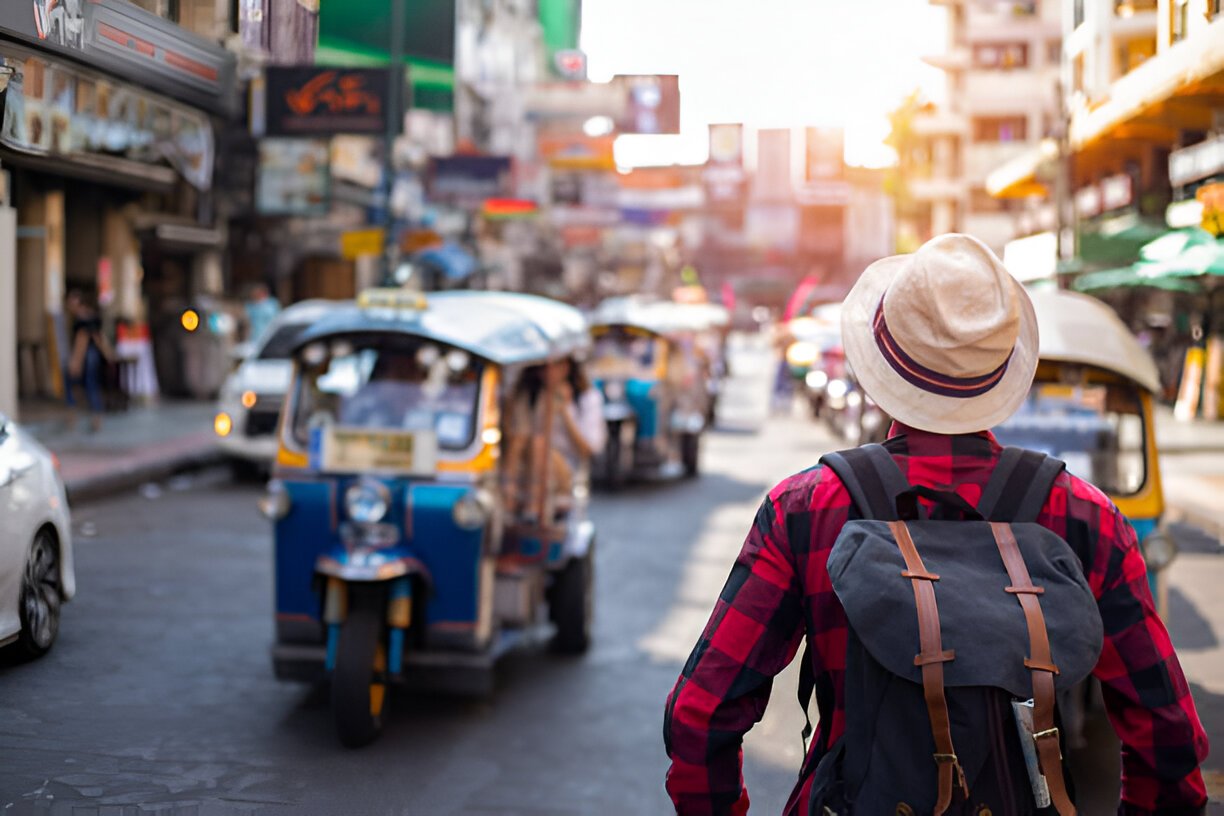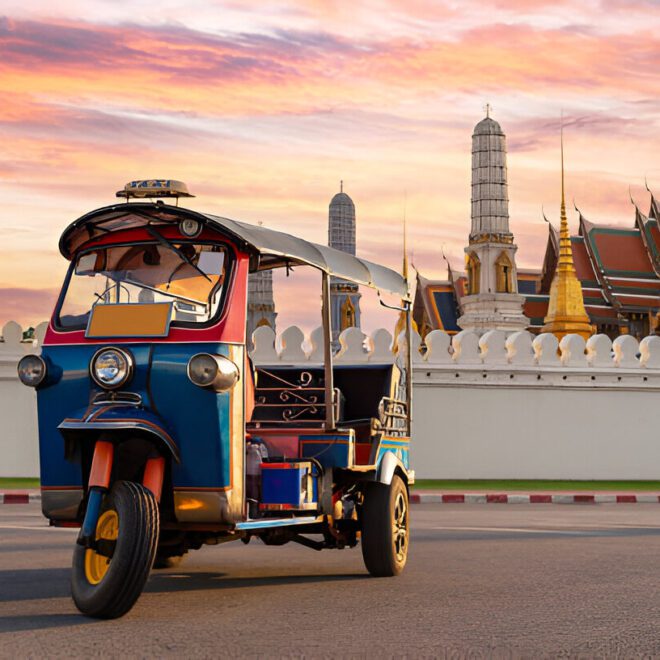The idea of moving to Bangkok is often a dazzling dream: vibrant street life, incredible food, temples that sparkle, and the promise of a truly unique adventure. It’s a city that captures hearts, mine included. But beneath the exciting surface, a successful move requires meticulous planning. Whether you’re considering a short-term relocation or planning to live in Thailand permanently, there are countless details to sort out.
Having navigated the complexities of settling into this incredible city myself, I know firsthand that a well-structured plan is your best friend. This isn’t just a list; it’s your comprehensive roadmap, detailing 30 essential steps to ensure a smooth transition. From sorting out your visa to discovering the best Bangkok rooftop bars for a sunset drink, we’ve got you covered. Get ready to turn your Bangkok dream into a brilliant reality!
Why Trust This Guide?
As an expat who has called Bangkok home for years, I’ve personally experienced the highs and lows of moving here. I’ve stood in the immigration queues, navigated the apartment hunt, figured out the banking system, and learned the nuances of daily life. This isn’t theoretical advice; it’s practical, on-the-ground knowledge gained through my own journey and from countless conversations with fellow expats. I’m sharing the exact steps and insights I wish I had when I first packed my bags for this incredible city.
Your Essential Checklist for Moving to Bangkok
| Category | Essential Steps |
| Pre-Move Essentials | Visa & Immigration, Budgeting, Research, Packing, Flights & Accommodation |
| Arrival & Settling In | SIM Card, Transport, Temporary Stay, Area Exploration, Initial Shopping |
| Long-Term Living | Housing, Banking, Healthcare, Education, Local Registration, Insurance |
| Daily Life & Culture | Language Basics, Cultural Norms, Food Exploration, Social Life, Leisure |
| Practicalities | Utilities, Internet, Mobile Banking, Emergency Contacts, Vehicle Ownership |
| Enjoying Bangkok | Exploring Attractions, Rooftop Bars, Day Trips, Fitness, Relaxation |
Pre-Move Essentials: Laying the Groundwork
Before you even book your flight, these fundamental steps will set the stage for a successful relocation.
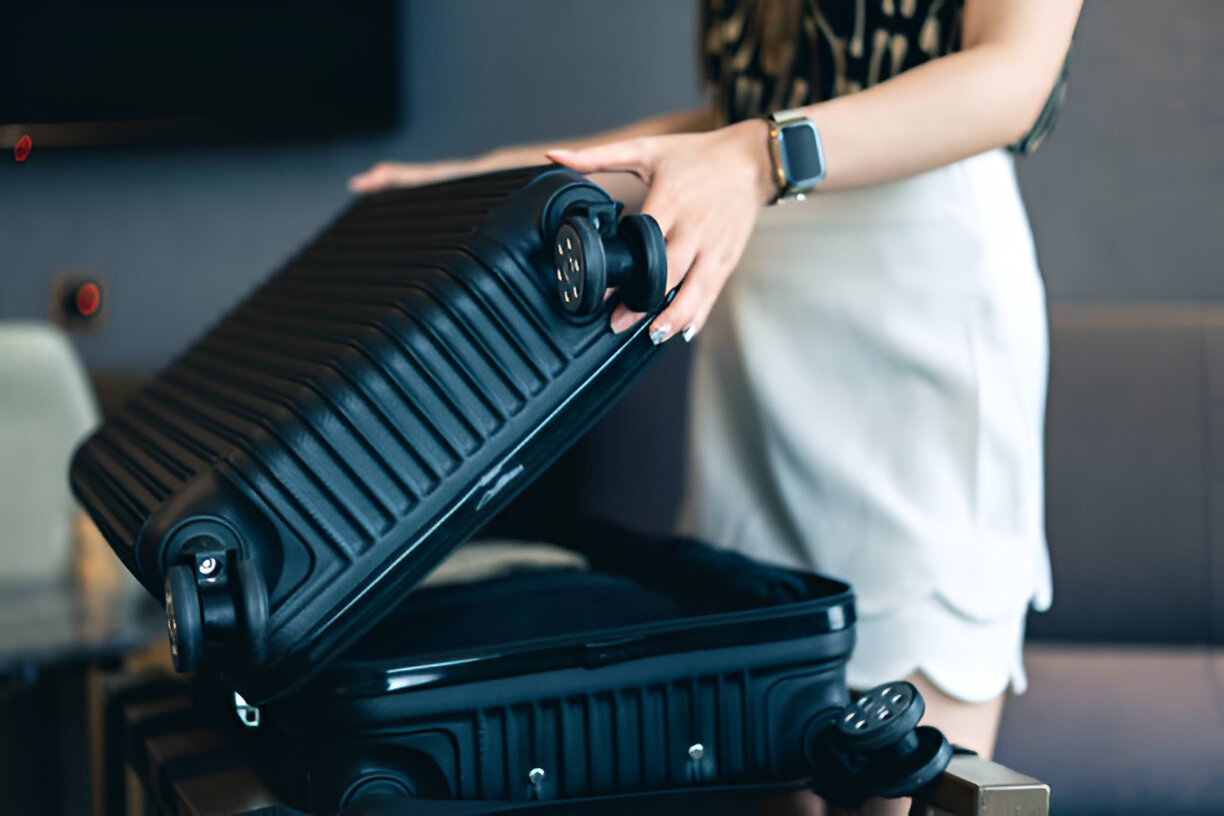
Secure the Right Visa for Thailand
This is non-negotiable. Thailand offers various visa types: tourist, non-immigrant (business, education, retirement, marriage), and potentially new long-term resident (LTR) visas. Ensure you apply for the appropriate one well in advance, gathering all necessary documents like your passport, photos, and proof of funds. Understanding Thai immigration requirements is paramount.
Budgeting and Financial Planning
How much money do you need to move to Bangkok? This is one of the most common questions. Research the cost of living meticulously. Factor in initial setup costs (visa, flights, first month’s rent, deposit), as well as monthly expenses for accommodation, food, transport, and leisure. A comfortable salary to live in Bangkok can range from 40,000 THB to well over 100,000 THB, depending on your lifestyle.
In-Depth Research on Neighborhoods and Lifestyle
Bangkok is vast. Research different areas like Sukhumvit, Silom, Sathorn, Thong Lo, Ekkamai, or Riverside. Each has a distinct vibe, amenities, and price points. Where do most expats live in Bangkok? Many gravitate towards Sukhumvit and Sathorn due to convenience and expat communities.
Health Check-ups and Essential Vaccinations
Visit your doctor for a comprehensive check-up. Get any necessary vaccinations (e.g., Hepatitis A & B, Typhoid, Tetanus) and ensure you have an adequate supply of any prescription medications. Keep your medical records accessible.
Notify Banks and Update Important Documents
Inform your bank about your move to avoid any issues with international transactions. Ensure your passport is valid for at least 6 months beyond your intended stay. Renew your driver’s license if it’s nearing expiration.
Packing Smart for a Tropical Climate
Pack light, breathable clothing. Don’t bring heavy winter wear! Consider essentials like good walking shoes, insect repellent, sun protection, and any specific toiletries you can’t live without. Remember you can buy almost anything here.
Book Your Flights and Initial Accommodation
Secure your flight tickets. For your first few weeks, book a serviced apartment or hotel. This gives you a base to operate from while you search for long-term housing, without the pressure of an immediate commitment.
Arrival and Settling In: Your First Weeks
You’ve landed! Now it’s time to get oriented and tackle the immediate practicalities.
Get a Local SIM Card
Purchase a local SIM card immediately at the airport or any convenience store/telecom shop. AIS, TrueMove H, and Dtac are the main providers. This is crucial for navigation, communication, and setting up accounts.
Understand Local Transportation Options
Familiarize yourself with Bangkok’s excellent public transport: the BTS Skytrain and MRT subway. Also, learn about Grab (ride-hailing app), taxis, motorbike taxis, and tuk-tuks. They are essential for getting around.
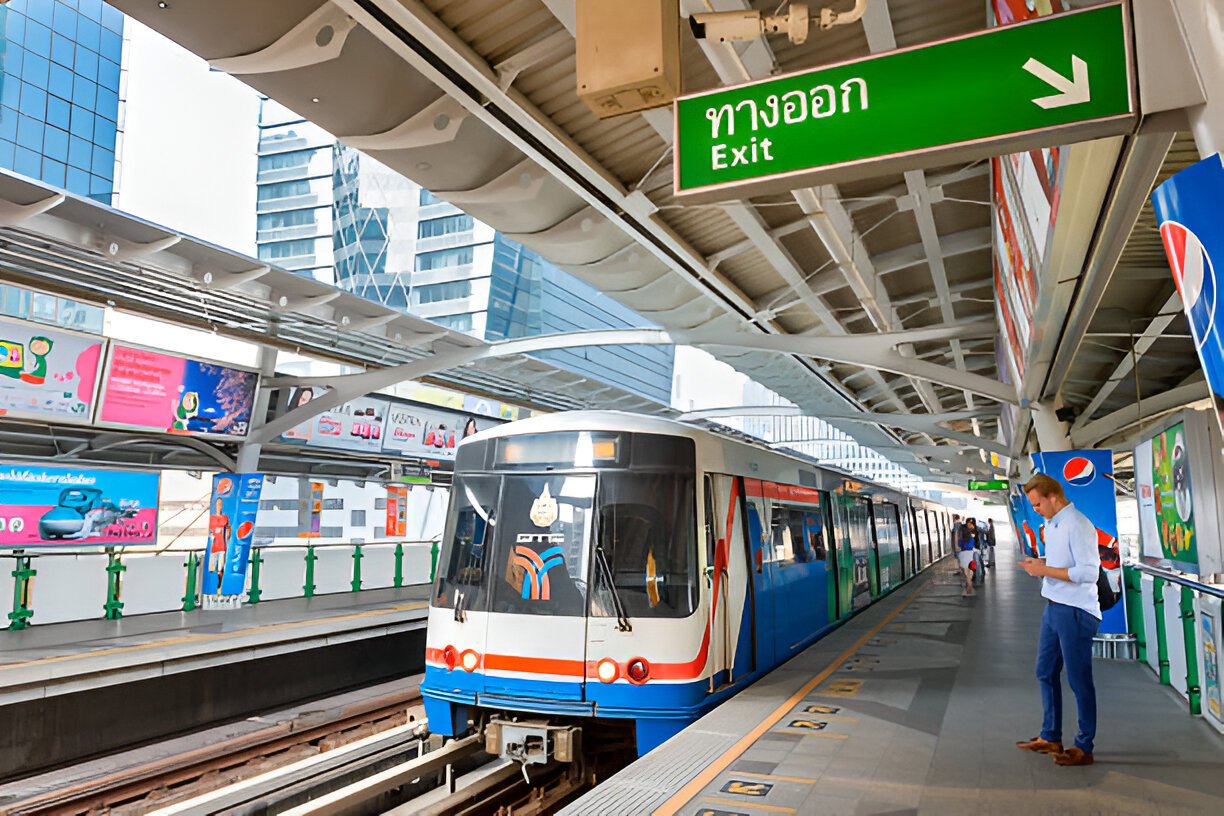
Explore Your Temporary Neighborhood
Walk around your initial accommodation. Find local markets, convenience stores (7-Eleven is everywhere!), pharmacies, and places to eat. This helps you get a feel for local life and accessibility.
Initial Grocery and Essential Shopping
Stock up on basic groceries from a local supermarket (e.g., Big C, Lotus’s, Tops) or a fresh market. Don’t forget household essentials for your temporary stay.
Long-Term Living: Establishing Your New Home
These steps will help you put down roots and build a sustainable life in Bangkok.
Find Permanent Accommodation
Start your apartment hunt. Work with reputable agents or use online platforms. Understand rental contracts, key money (deposit), and utility arrangements. View multiple properties before making a decision.
Set Up a Local Bank Account
Opening a bank account as an expat can sometimes be tricky without a work permit or long-term visa. Popular banks include Bangkok Bank, Kasikornbank (KBank), and SCB. Research their requirements for foreigners.
Demystifying Thai Visas for Long-Term Stays
Our 2025 beginner’s guide breaks down the most common options—from work and retirement to the LTR visa—to help you plan a smooth and legal move.
Arrange Health Insurance
Do not rely solely on travel insurance. Invest in comprehensive local or international health insurance. The quality of private hospitals in Bangkok is excellent, but costs can be high without coverage.
Consider International Schools (If Applicable)
If you’re moving with children, research international schools well in advance. Admission can be competitive, and tuition fees are a significant consideration in your budget.
Register with Your Embassy/Consulate
It’s a good safety measure to register your presence with your home country’s embassy or consulate in Bangkok. This helps them locate you in case of emergencies.
Familiarize Yourself with Thai Law and Customs
Understand local laws regarding respectful behavior, alcohol consumption, and general etiquette. The “Land of Smiles” has a deep cultural heritage, and showing respect is key.
Secure a Thai Driver’s License (If Driving)
If you plan to drive or ride a motorbike, converting your international driver’s license to a Thai one is essential for legal compliance and insurance purposes.
Daily Life & Culture: Embracing the Thai Way
Beyond logistics, integrating into the local culture enriches your experience.
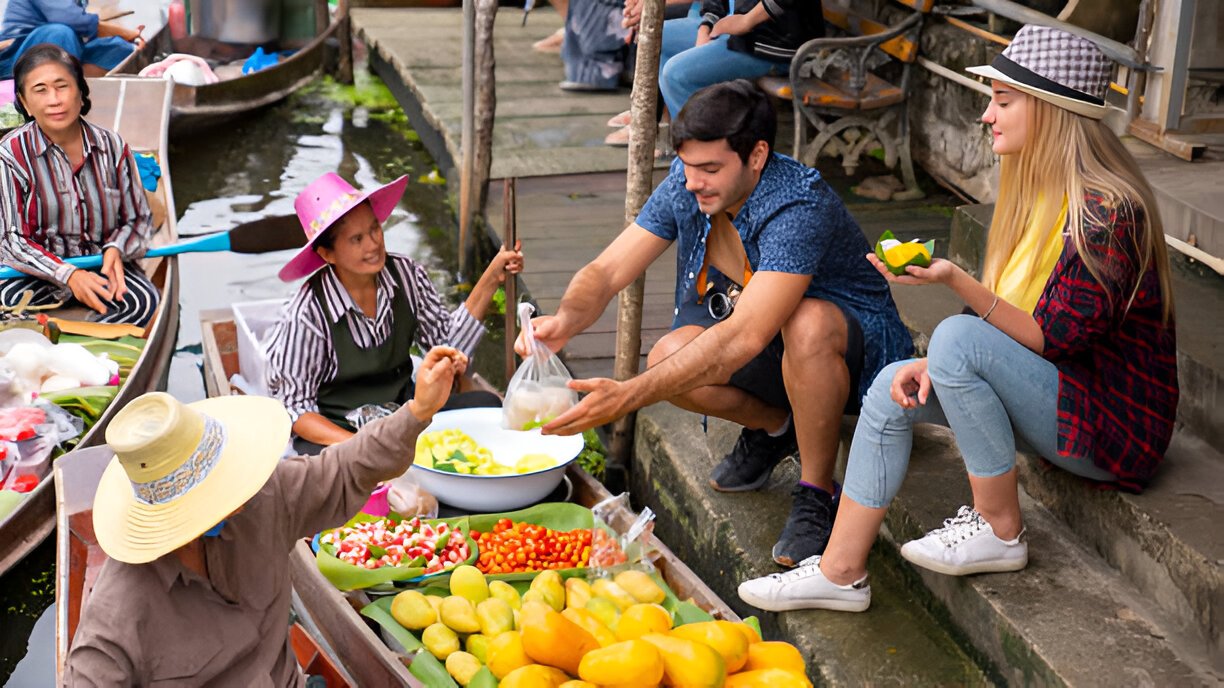
Learn Basic Thai Phrases
Even a few polite phrases like “Sawasdee krap/ka” (hello), “Khob khun krap/ka” (thank you), and numbers will go a long way. Locals appreciate the effort.
Understand Cultural Nuances and Etiquette
Respect the monarchy, don’t touch people’s heads, don’t point with your feet, and always remove your shoes when entering homes or temples. Observe and learn from locals.
Explore the Incredible Food Scene
Dive into Thai cuisine! From street food stalls to Michelin-starred restaurants, Bangkok is a foodie paradise. Don’t be afraid to try new dishes and explore local markets.
Build a Social Network
Connect with other expats through online groups (e.g., Facebook groups for expats in Bangkok), meetups, sports clubs, or social events. Building friendships is crucial for well-being.
Embrace the Pace and Flow of Life
Things might move slower, or differently, than you’re used to. Practice patience, flexibility, and a sense of humor. “Mai pen rai” (no worries) is a common and useful phrase.
Practicalities & Enjoyment: Living Your Best Bangkok Life
These final steps ensure comfort, safety, and a fulfilling life in your new city.
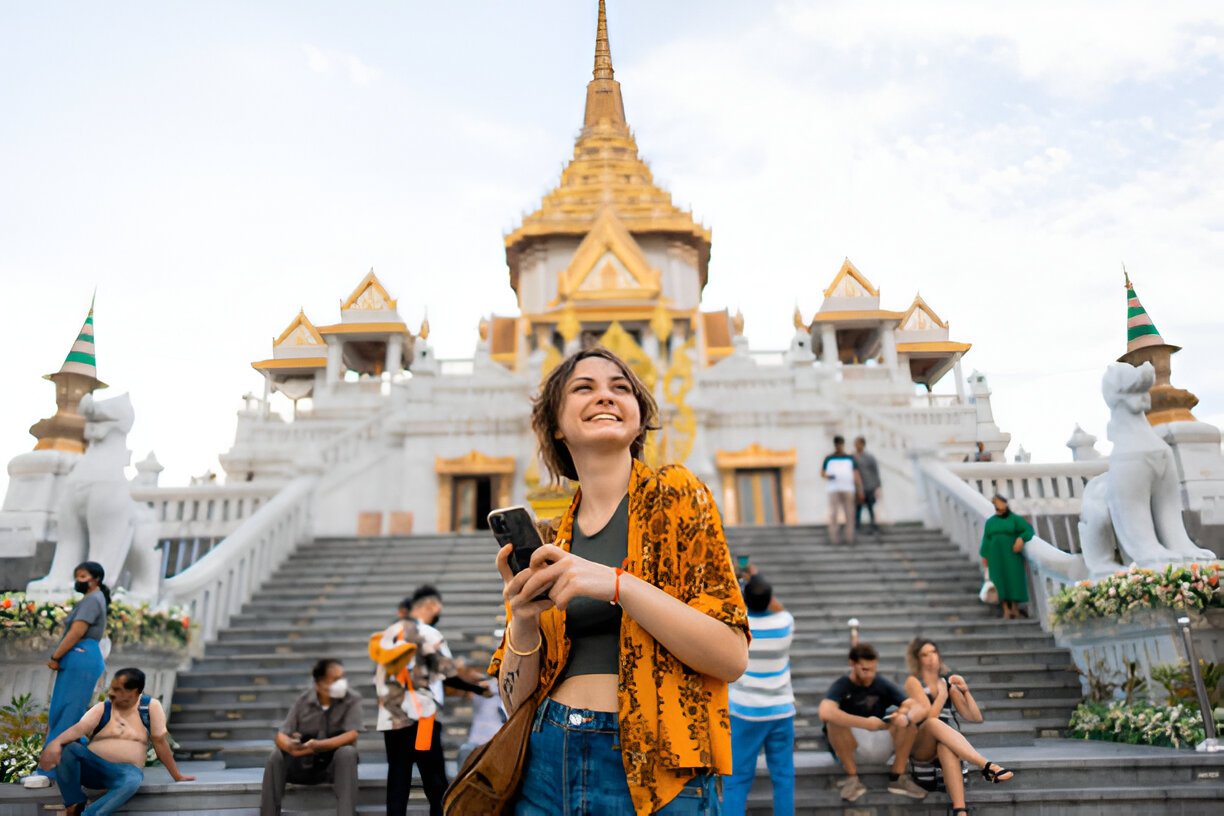
Set Up Utilities and Internet
Arrange electricity, water, and internet services for your long-term apartment. Your landlord or agent can usually assist with this. High-speed internet is readily available.
Register for Mobile Banking and Payment Apps
Once you have a Thai bank account, set up mobile banking apps. Many local payment apps (like TrueMoney Wallet, PromptPay) are widely used and convenient.
Know Emergency Contacts and Procedures
Keep a list of emergency numbers: Tourist Police (1155), general emergency (191), ambulance, and your embassy’s contact.
Consider Owning a Vehicle (Proceed with Caution)
Bangkok traffic is legendary. Weigh the pros and cons of owning a car or motorbike versus relying on public transport and ride-hailing services. Parking can be an issue.
Discover Local Attractions and Hidden Gems
Beyond the Grand Palace and Wat Arun, explore local markets, art galleries, and charming cafes. Each soi (side street) often holds a new discovery.
Experience Bangkok Rooftop Bars
Treat yourself! Explore the city’s amazing Bangkok rooftop bars for breathtaking views. From high-energy spots like Tichuca to sophisticated lounges like Vertigo, it’s an iconic Bangkok experience.
Plan Weekend Getaways and Day Trips
Thailand offers incredible diversity. Use Bangkok as your base to explore nearby destinations like Ayutthaya, Hua Hin, Pattaya, or even a quick flight to a southern island.
Stay Fit and Healthy
Join a gym, find a yoga studio, or simply enjoy walking in parks like Lumphini or Benjakitti. Staying active is important for adapting to the heat and humidity.
Find Your Favorite Relaxation Spots
Whether it’s a traditional Thai massage, a peaceful temple, or a quiet cafe, find places where you can decompress from the city’s energy.
Frequently Asked Questions
Is it worth moving to Bangkok?
How much money do you need to move to Bangkok?
Can you live in Bangkok for $1000 a month?
Where do most expats live in Bangkok?
What are the downsides to living in Thailand?
References
For further official and expat-focused information on moving to Thailand, consider these reliable sources:
- Thai Immigration Bureau: The official source for all visa and immigration regulations. Their website provides up-to-date requirements for different visa categories. https://www.immigration.go.th/
- ExpatDen: A comprehensive resource for foreigners moving to and living in Thailand, covering topics like visas, banking, housing, and healthcare with practical advice. https://www.expatden.com/
- Numbeo: Cost of Living in Bangkok: Provides user-contributed data on consumer prices, rental prices, and various costs, giving a realistic picture of living expenses. https://www.numbeo.com/cost-of-living/in/Bangkok
- 25 Best Dim Sum in Bangkok: The Ultimate 2026 Guide - 10/02/2026
- 10 Best International Moving & Relocation Companies 2026 - 31/01/2026
- 20 Best Indian Restaurants in Bangkok (2026 Guide) - 26/01/2026


